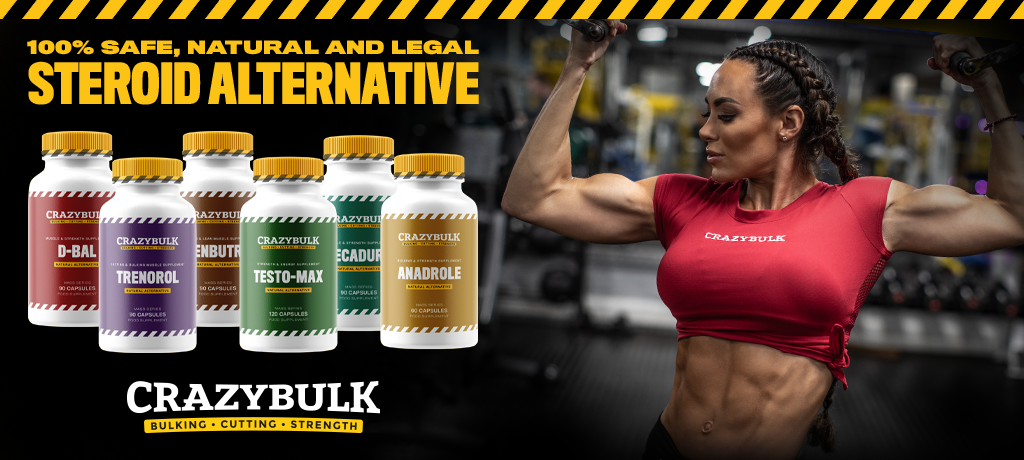Testosterone, often abbreviated as T, plays a pivotal role in the development of larger muscles, enhancing strength and endurance, and bolstering sexual desire. For enthusiasts in the realm of fitness and bodybuilding, understanding how to naturally augment male hormone levels is of paramount importance. In this article, we present an in-depth, scientifically-backed guide detailing strategies to naturally elevate testosterone levels from the comfort of your home.
Unraveling Low Testosterone Causes
“Why is my testosterone production suboptimal?” is a common concern for many. Several factors can contribute to diminished T levels, including:
- Dietary Habits:
- Chronic caloric deficits (below 20% of the basal metabolic rate).
- Persistent overeating, culminating in obesity.
- Poorly-balanced diets lacking essential vitamins, minerals, and crucial macro and micronutrients.
- Inadequate fat intake.
- Mental and Emotional Factors:
- Pervasive feelings of despondency, coupled with stress and anxiety.
- Quick and erratic mood fluctuations.
- Medical Interventions:
- Prolonged use of medications, such as legal steroids or corticosteroids.
- Overindulgence in hormonal contraceptives (specifically for women).
- Extensive and recurring use of anabolic steroids, examples include Nandrolone and Turinabol.
- Steroid cycles devoid of essential post-cycle therapies like Clomid for men or Tamoxifen.
- Chronic health conditions and various infections.
- Lifestyle Choices:
Natural Strategies to Elevate Testosterone: Spotlight on Resistance Training
Resistance or strength training stands out as a cornerstone in the pursuit of boosting testosterone. Prof. William Kremer, along with several contemporaries, documented in the Sports Medicine Journal how weight training (employing barbells, kettlebells, and related equipment) can induce notable surges in both testosterone and HGH within a short time frame, sometimes as quickly as 30 minutes post-workout.

But, how can one optimize T production through resistance training? In 2010, researcher Brad Schoenfeld released a groundbreaking paper titled, “The mechanisms of muscle hypertrophy and their application for resistance training.” This work shed light on resistance training’s symbiotic relationship with anabolic hormones. Here’s a concise summary of his findings:
- Nature of Exercises: Predominantly multi-joint exercises like deadlifts, barbell presses, squats, thrusters, and clean and jerk.
- Set and Rep Range: A minimum of 4 sets with repetitions ranging between 6 to 12, tailored to individual fitness levels.
- Rest Intervals: Adequate rest between sets, ideally spanning 60-90 seconds, ensures optimal hormone release and muscle recovery.
Integrating these findings into your resistance training routine can set the stage for enhanced testosterone production and overall improved physical performance.
Natural Strategies to Enhance Testosterone: Focus on Diet and Hydration
Want to naturally elevate your testosterone levels without relying on medications? Nutrition and hydration are central to this objective. Below are several evidence-based recommendations:
- Caloric Balance: A nutritionally rich diet with an adequate caloric intake can positively influence testosterone levels. Extreme caloric deficits can impede the enzymes responsible for testosterone synthesis, resulting in reduced testosterone production. Conversely, excessive calorie intake can lead to increased fat storage, which can activate the aromatase enzyme responsible for converting testosterone into estrogen. Therefore, a moderate caloric surplus is key.
- Include Quality Protein Sources: Consuming meats such as chicken, pork, beef, poultry, turkey, mutton, and veal, as well as fish, can have a beneficial effect on testosterone production. Research has shown that strict vegetarian or vegan diets can lead to reduced testosterone levels. A 1985 study in the American Journal of Clinical Nutrition by B. J. Howie and T. D. Shultz highlighted a hormonal disparity between vegetarians and omnivores, with the latter group exhibiting higher testosterone levels.
- Prioritize Healthy Fats: Ensure that fats constitute approximately 30% of your daily caloric intake. While it’s essential to monitor polyunsaturated fat intake (commonly found in fatty fish and certain oils like corn and sunflower), place a greater emphasis on monounsaturated fats, which can be sourced from canola oil, peanut butter, nuts, and avocados. Saturated fats, prevalent in red meat, dairy products, and egg yolks, also play a role in maintaining optimal testosterone levels. Research, such as that from the University of Pennsylvania, underscores the positive impact of saturated and monounsaturated fats on testosterone levels, while suggesting that polyunsaturated fats might be detrimental.
- Boost Vegetable Intake: Incorporating cruciferous vegetables like broccoli, Brussels sprouts, kohlrabi, arugula, and daikon can be particularly beneficial. These veggies contain indole-3-carbinol (C9H9NO), a compound that reduces estrogen production. This finding is supported by a 1991 study by H. L. Bradlow, J. Michnovicz, N. T. Telang, and M.P. Osborne from the Institute of Hormonal Research in New York.
- Stay Hydrated: Drinking adequate water is crucial for various physiological processes, including testosterone production. A 1985 study from the University of California highlighted the negative impact of dehydration on testosterone release post-resistance training. Dehydration can also increase cortisol levels, further hampering testosterone production and overall metabolic function.
In summary, your dietary choices play a significant role in determining your testosterone levels. Pairing a well-balanced diet with consistent hydration can provide a natural pathway to optimal testosterone levels and overall well-being.

Boosting Testosterone: The Role of Vitamins, Minerals, and Lifestyle Choices
For optimal testosterone production, the intake of certain vitamins and minerals is indispensable. These essential nutrients function as natural enhancers for testosterone levels.
Zinc: An essential mineral, zinc’s importance cannot be overstated when it comes to maintaining suitable testosterone levels. A deficiency in zinc can directly impede the body’s ability to produce testosterone.
Vitamin D: Integral in hormone regulation, vitamin D also inhibits the enzyme aromatase, responsible for converting testosterone to estrogen. People who spend extended periods indoors might not receive enough of this vital vitamin from sunlight. Hence, experts suggest supplementing with vitamin D, especially since obtaining the daily requirement of 600 IU solely from food can be challenging.
Magnesium: A study by French researchers in 2009 highlighted magnesium’s value for testosterone synthesis. Magnesium can inhibit the overproduction of SHGB, thereby promoting healthy testosterone levels.
Natural Strategies for Testosterone Enhancement: Sleep, Stay Calm, and Embrace Intimacy
Sleep: Sleep is pivotal for testosterone production. The primary boost in male hormones occurs during deep sleep cycles. Aim for 7-9 hours of quality sleep each night. Research from Brazil underscores the fact that sleep deprivation can impede androgen circulation and disrupt the endocrine system’s balance. Other prominent studies concur, suggesting that consistent sleep disturbances can be detrimental to testosterone levels.
Relaxation: Techniques like meditation, deep breathing exercises, and other natural therapeutic methods can be powerful tools in stress reduction. An American study found that consistent meditation could curb cortisol production, a stress hormone, thereby promoting increased testosterone and HGH levels.
Sex: Contrary to some misconceptions, engaging in regular intimate activities can actually boost testosterone. It’s a myth that sex depletes testosterone levels. A 1992 study from the University of Georgia supports this, suggesting that intimacy can elevate testosterone levels.

In Conclusion: Holistic Approaches to Enhancing Testosterone Levels
For those seeking ways to elevate testosterone naturally, it’s best to adopt a comprehensive approach. When you combine regular exercise, a nutrient-rich diet, sufficient rest, and effective stress management techniques, you pave the way for optimal testosterone and HGH production. Beyond these methods, consider incorporating tried-and-true home remedies known to support hormone health. By integrating these strategies, you’re not just boosting your testosterone but fostering holistic wellness, manifesting in a more vigorous, toned, and healthier physique.

